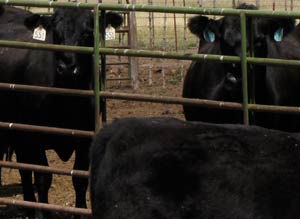May 11, 2011 A variety of voices are being raised on NYTime’s ‘Room for Debate‘ opinion page this week, with the subject header being Preventing Cruelty on the Farm. This is an important topic that warrants discussion as a number of states consider changing laws that prohibit photographs or filming of a farm without that farmers consent. “Supporters of such legislation say farm operations need protection from interlopers, while opponents argue that the bad operators should be punished, not those who expose cruel practices.”
Here are a few excerpts from each of the authors:
“The United States should launch a domestic Peace Corps for farming. America needs to repopulate rural America and stimulate beneficial jobs for young people. Our nation struggles with unemployment, and yet traditional farming is disappearing partly because it is more labor intensive. Training the next generation in sustainable agriculture and assisting them to start new farms could be a brave president’s boldest and most lasting initiative.”-Nicolette Hahn Niman, from “Five Steps the Government Can Take”
“I am often struck by the oddity that the sport of baseball is too pure for the use of performance enhancing substances — but the food we eat isn’t. That is the inconvenient truth of our food system. But I’m not entirely sure that Americans are willing to accept it.” -Tom Laskawy, from “It’s Up to Consumers to Care”
“The agricultural industry should be opening doors when they are attacked and not closing them. Progressive leaders in the industry are opening doors so that the public can see what they are doing. The Cargill Corporation should be commended for allowing the Oprah Show to film the inside of its beef slaughter plant in Colorado. J.S. West, a California egg producer, has a live chicken cam that streams live video out to the Internet. Both Cargill and J.S. West are communicating with the public the right way.” -Temple Grandin, from “Open the Barn Doors”
“Criminal animal protection laws originated as a response to the cruel treatment of farm and working animals, the earliest in Massachusetts in 1641. But during the 20th century legal definitions of what kinds of animals are protected were changed to exclude farm animals, and cruel practices in farming were exempted from general definitions of cruel practices.” -Joseph Vining, from “Criminal Penalties for Agribusiness”
“Official government policy for nearly a century has been to grow everything faster, fatter, bigger, cheaper, without regard to higher moral or ethical considerations. As long as Americans demand food as cheap as ecological, emotional and economic abuse delivers, the corporate-government food fraternity will thrive.” -Joel Salatin, from “Government Isn’t the Answer”
“The development of such markets will serve to inform the animal welfare debate in at least two ways. First, there’s cost: will bacon and chicken breasts cost twice as much, or only modestly more, if pigs and chickens are more thoughtfully looked after?” -Walter Olson, from “Let States and Markets Sort It Out”
Go to original post.

